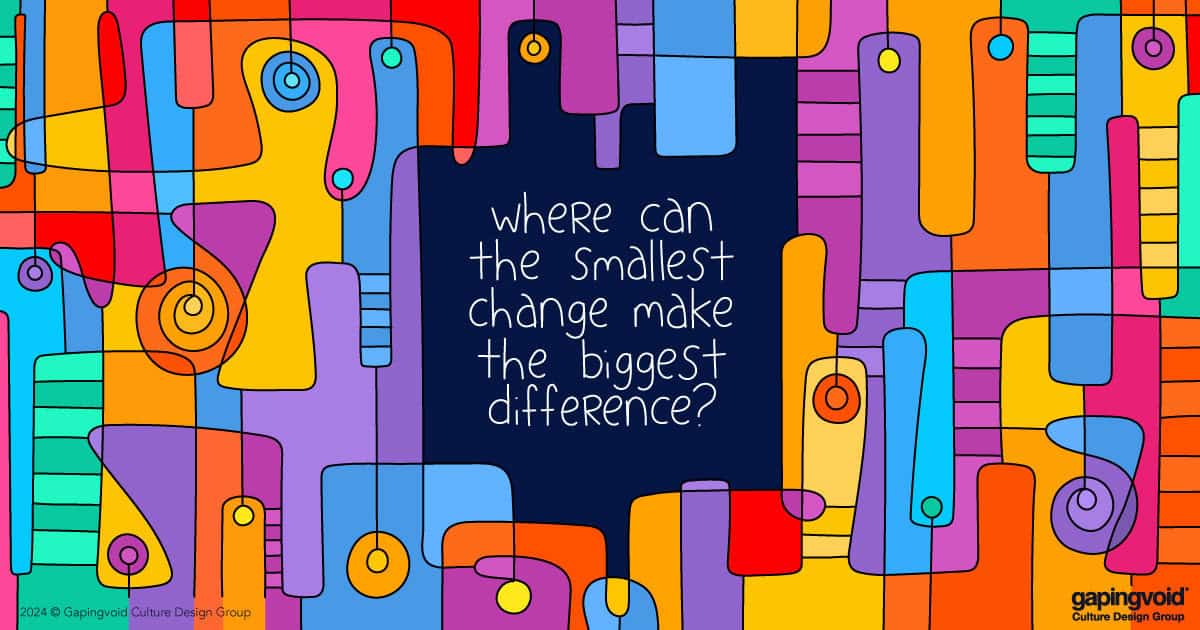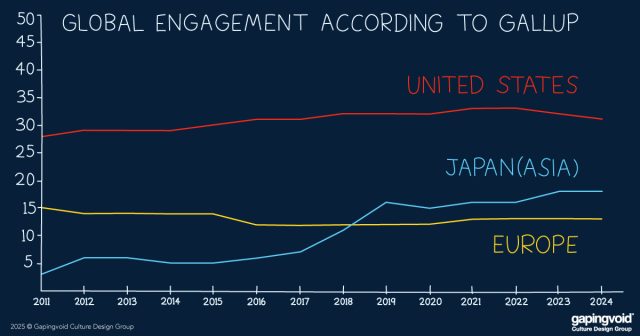
In 1980, a 46-cent chip almost caused nuclear armageddon.
Gapingvoid advisor, Brigadier General John “Dragon” Teichert (USAF (RET) tells the story in his leadership manifesto, BOOM!: Leadership that Breaks Barriers, Challenges Convention, and Ignites Innovation. As he describes it, one day:
Early warning screens at NORAD detected 2 inbound Soviet missiles. A few moments later, 220 missiles were detected, and that number increased to over 2,000 shortly thereafter. As split-second decisions were passed up the chain of command on how to respond, nuclear alert crews scrambled to their bombers, and launch messages were prepared for the missile fields and submarine captains, the missiles on the screens disappeared without a trace. No missiles struck our nation.
What caused the false alarm? A single 46-cent chip in the system failed.
The Butterfly Effect is real. Tiny or even invisible causes can produce massive effects. Because they don’t have to produce the massive effect on their own. All they need to do is tip the next domino in the chain, and away it goes.
To make matters worse, we all have blind spots, and we’re all blind to them. That’s why we need each other, and why we should listen to each other more. It’s the only way we can spot the “46-cent chips” – the highly-leveraged points of failure – before they lead to a disaster.
Life is a risky business. The world is full of “46-cent chips” that can lead to outsized Black Swan outcomes. There’s also plenty that can yield outsized rewards.
The hard part is creating an environment where people go looking for them and are open to doing something about it when they find them.
But this isn’t really a story about chips. It’s about people.
If really small things like 46-cent chips can make a huge difference, imagine the power we all wield.
Especially when we feel like we matter. As Dragon writes, this event reminded senior military leaders and their technical experts of an important fact: “every part matters and nothing in the system should be discounted, minimalized, or marginalized.”
Reality is a lot like the jungle. It’s not the tiger that we need to worry about, it’s the mosquito biting our backside that’s more likely to put us six feet under.



